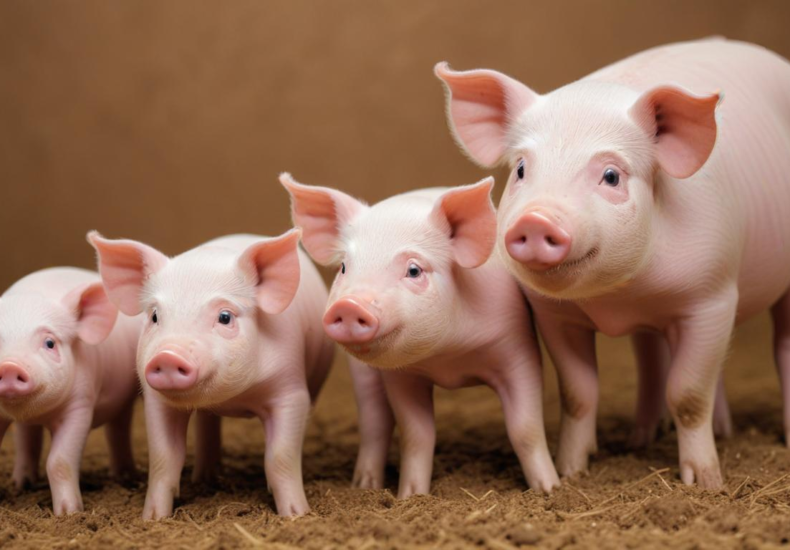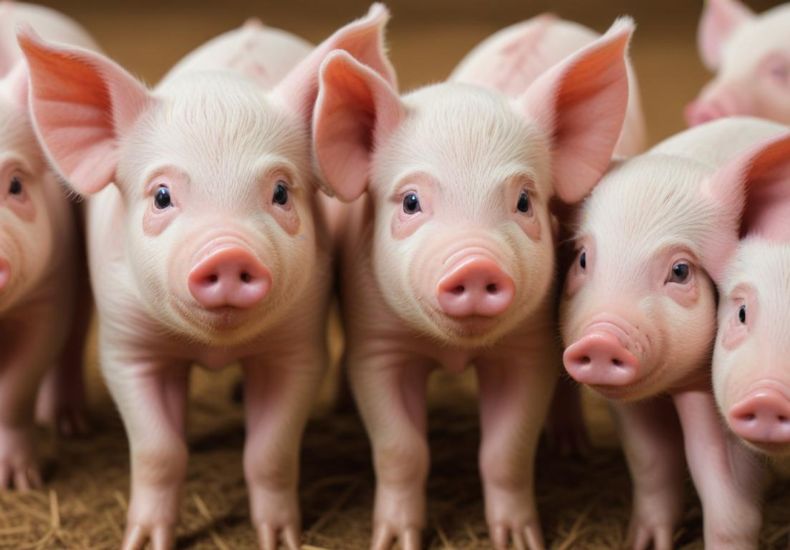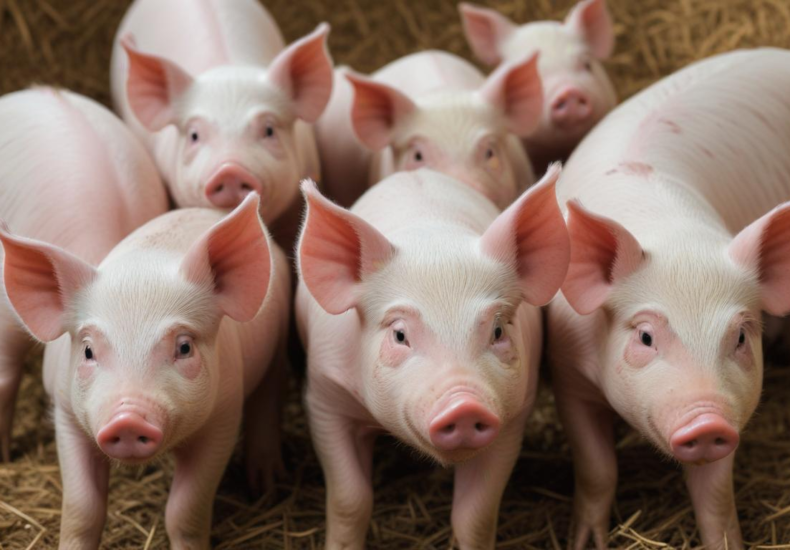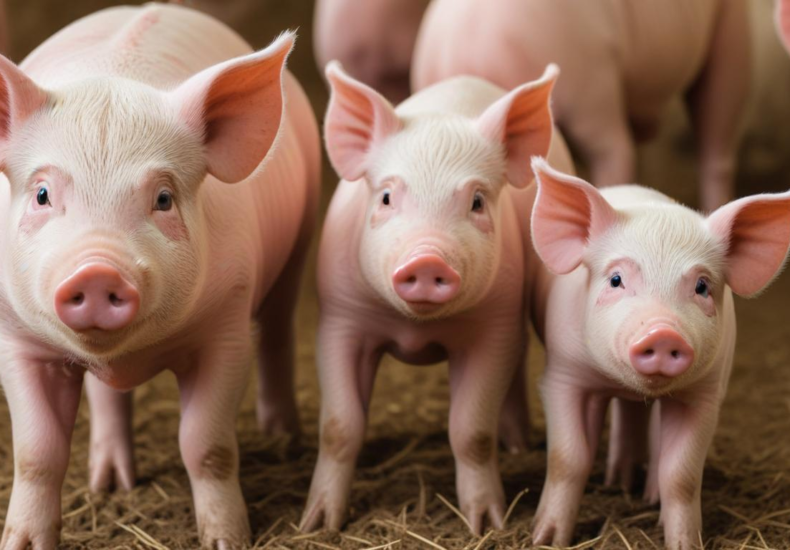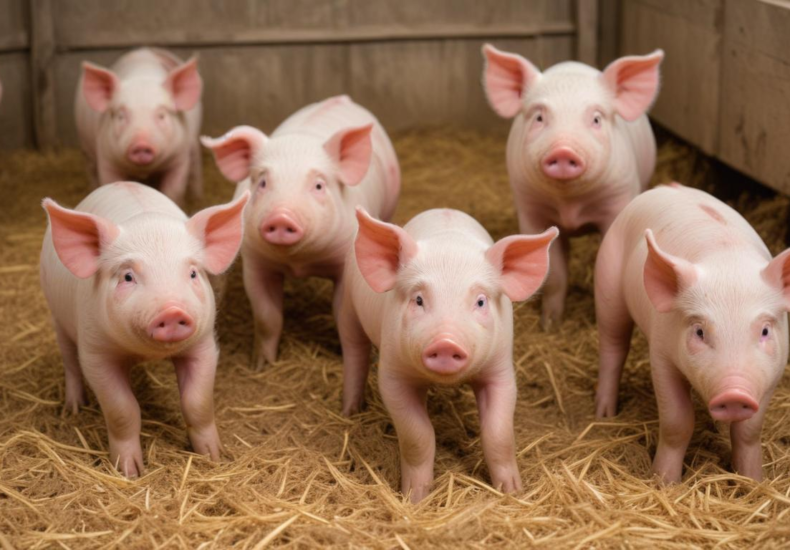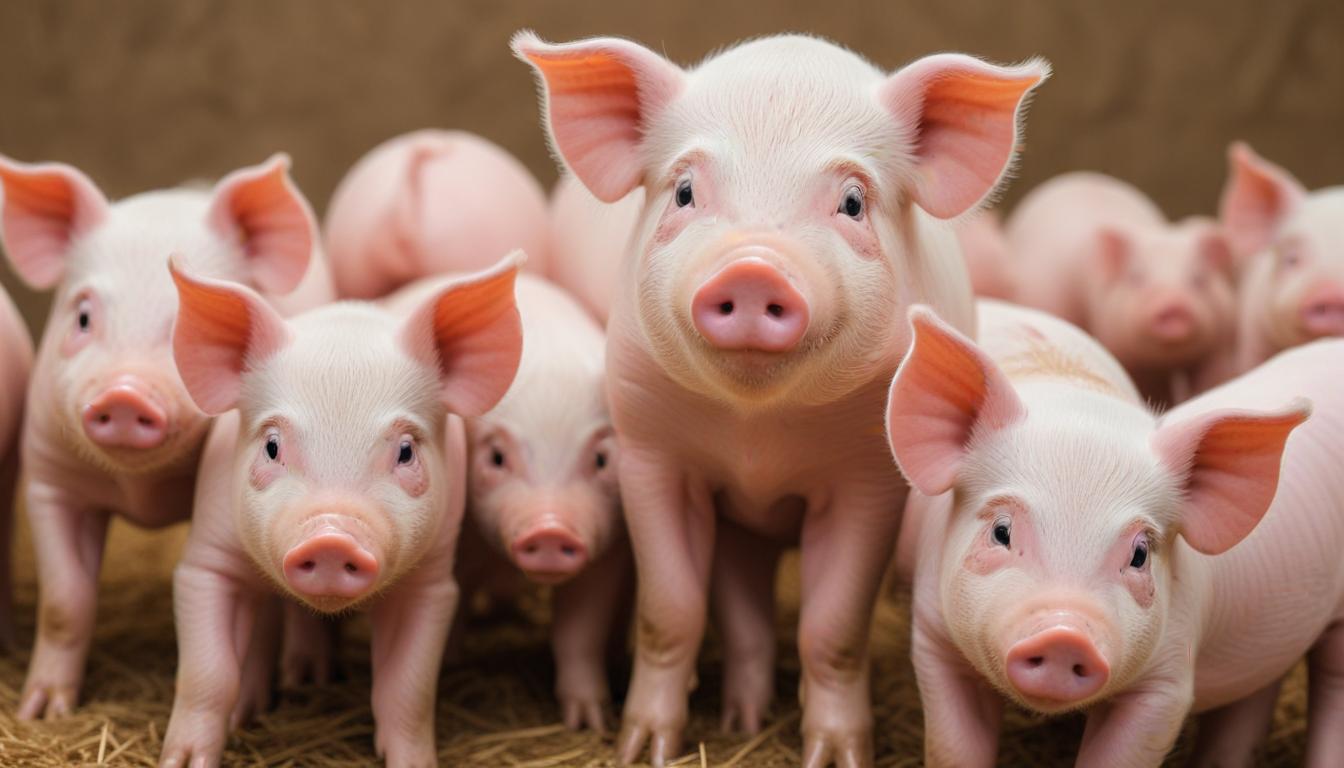Tag: reproduction
improving pig fertility through genetics
Advancements in genetic breeding strategies for pigs are transforming the landscape of reproductive performance. By combining traditional methods with cutting-edge technologies such as genomic selection and machine learning, breeders can identify key traits that enhance fertility. Factors like litter size, conception rates, and gestation length are critical, but environmental management and nutritional strategies also play pivotal roles. As breeders navigate this complex interplay, the future of pig fertility and productivity looks promising, driven by innovation and a commitment to sustainable practices. What breakthroughs lie ahead in pig genetics?
understanding X and Y chromosomes in pigs
The dynamics of sex determination in pigs are intricately linked to the X and Y chromosomes, shaping their sexual characteristics and reproductive functions. With the X chromosome housing over 1,000 genes vital for growth, immune response, and fertility, while the Y chromosome focuses mainly on male traits through the SRY gene, their genetic interplay presents significant implications for breeding. As research progresses, understanding these chromosomal differences could revolutionize livestock management, enhancing traits such as disease resistance and reproductive efficiency in swine populations.
exploring the heritability of pig sex ratio
The genetic determination of sex ratios in pigs is a complex interplay of genetics and environmental factors, challenging conventional assumptions about reproduction. Key genes, including the sry gene on the Y chromosome, and various autosomal interactions significantly influence outcomes. Additionally, maternal stress and nutrition may skew these ratios, highlighting the intricate connection between genetics and environmental conditions. Future research aims to refine breeding strategies and enhance production efficiency by exploring genetic markers and environmental impacts on sex differentiation. Discover how advancing technology and methodologies could revolutionize swine breeding practices.
the role of heredity in pig reproduction
The exploration of genetic influences on pig reproduction uncovers the pivotal role heredity plays in fertility rates, gestation periods, and overall litter success. Advances in genomic technologies and breeding practices reveal how specific traits can be cultivated for better outcomes. Additionally, the interplay between genetics and environmental factors, including nutrition and housing, poses both challenges and opportunities for enhancing reproductive efficiency. As these methodologies evolve, the future of swine production may witness unprecedented gains in productivity and sustainability.
heritability estimates for pig reproductive traits
Understanding the heritability of reproductive traits in pigs is essential for advancing breeding strategies and improving efficiency in swine production. Key traits such as litter size and age at first service exhibit varied heritability estimates influenced by genetic and environmental factors. Recent advancements, including genomic selection, offer new possibilities for identifying specific genes and optimizing breeding practices. As breeders navigate the interplay between genetics and management, the potential for enhancing herd productivity and sustainability becomes increasingly promising. Discover the intricacies that can transform swine breeding and production in the modern agricultural landscape.
the science behind pig breeding and genetics
Advancements in pig genetics are reshaping the landscape of swine breeding, highlighting the interplay between hereditary traits, biotechnology, and animal welfare. By leveraging modern techniques like genomic selection and CRISPR, breeders can enhance traits such as disease resistance and feed efficiency. Sustainable practices are also gaining traction, promoting environmental responsibility while meeting consumer demands. As data-driven methodologies and collaborative approaches evolve, the future of pig breeding promises to optimize genetic potential, improve productivity, and ensure better welfare for animals and producers alike.
understanding epigenetics in pig reproduction
Epigenetics plays a critical role in pig reproduction, affecting gene expression without altering DNA sequences. Environmental factors, nutrition, and stress can induce epigenetic modifications that influence fertility, gestation, and embryo viability. Key mechanisms such as DNA methylation and histone modifications dynamically regulate reproductive genes, showcasing how subtle shifts can lead to profound effects on herd productivity. The implications of these findings suggest innovative strategies for enhancing breeding programs, focusing not only on genetic traits but also on optimizing the environmental influences that shape pig reproduction.
genetic solutions for swine reproductive challenges
Recent advancements in genetic approaches are transforming swine fertility, targeting key reproductive challenges such as litter size, farrowing rates, and gestation length. By leveraging genomic selection, markers for fertility traits, and innovative techniques like cryopreservation and artificial insemination, producers can enhance breeding efficiency and improve herd productivity. These strategies not only promise healthier livestock but also pave the way for sustainable swine farming, ensuring long-term growth and profitability in the industry. Discover the evolving landscape of swine reproduction and the potential innovations on the horizon.
Archives
Calendar
| M | T | W | T | F | S | S |
|---|---|---|---|---|---|---|
| 1 | ||||||
| 2 | 3 | 4 | 5 | 6 | 7 | 8 |
| 9 | 10 | 11 | 12 | 13 | 14 | 15 |
| 16 | 17 | 18 | 19 | 20 | 21 | 22 |
| 23 | 24 | 25 | 26 | 27 | 28 | |
